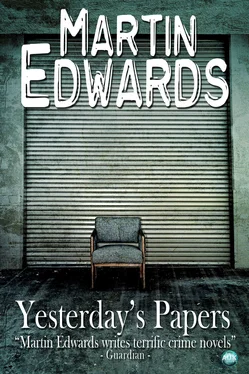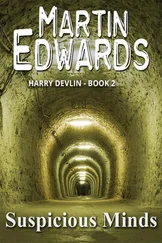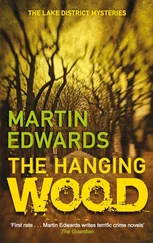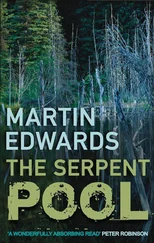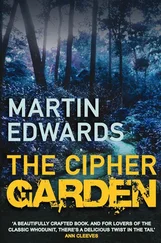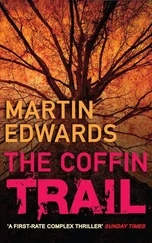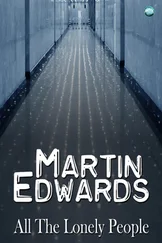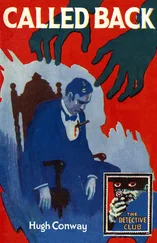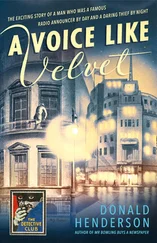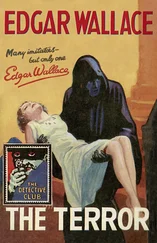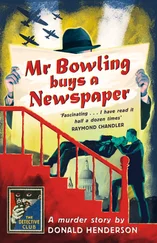Martin Edwards - Yesterday's papers
Здесь есть возможность читать онлайн «Martin Edwards - Yesterday's papers» весь текст электронной книги совершенно бесплатно (целиком полную версию без сокращений). В некоторых случаях можно слушать аудио, скачать через торрент в формате fb2 и присутствует краткое содержание. Жанр: Криминальный детектив, на английском языке. Описание произведения, (предисловие) а так же отзывы посетителей доступны на портале библиотеки ЛибКат.
- Название:Yesterday's papers
- Автор:
- Жанр:
- Год:неизвестен
- ISBN:нет данных
- Рейтинг книги:3 / 5. Голосов: 1
-
Избранное:Добавить в избранное
- Отзывы:
-
Ваша оценка:
- 60
- 1
- 2
- 3
- 4
- 5
Yesterday's papers: краткое содержание, описание и аннотация
Предлагаем к чтению аннотацию, описание, краткое содержание или предисловие (зависит от того, что написал сам автор книги «Yesterday's papers»). Если вы не нашли необходимую информацию о книге — напишите в комментариях, мы постараемся отыскать её.
Yesterday's papers — читать онлайн бесплатно полную книгу (весь текст) целиком
Ниже представлен текст книги, разбитый по страницам. Система сохранения места последней прочитанной страницы, позволяет с удобством читать онлайн бесплатно книгу «Yesterday's papers», без необходимости каждый раз заново искать на чём Вы остановились. Поставьте закладку, и сможете в любой момент перейти на страницу, на которой закончили чтение.
Интервал:
Закладка:
‘You’re a man after my own heart.’
‘I know, that’s what bothers me.’
The papers comprised old cuttings on which dates had been scrawled in ballpoint and a few flimsy sheets of typed stories in draft. Harry was immediately entranced. The first item in the pack, headed GIRL STRANGLED IN SEFTON PARK, set the shock-horror tone for everything that followed. During the first few hours of the investigation, the police had given very little away and Harry, digressing for a moment, marvelled that in those days the public respect for the bobby on the beat had apparently been so much stronger than today, when every force had its own slick public relations team. Perhaps there was a lesson in that.
Even at a distance of thirty years, he could almost hear the exultant shouts in the newsroom when the journalists learned that the victim was not only pretty but also had a famous father. It must have seemed like a stroke of luck, giving an added dimension to a tragic killing, making it certain that the story would run and run.
Guy Jeffries’ photograph appeared in many of the cuttings that followed. Even in smudged black-and-white portraits that might have been taken by a boy scout using a box brownie for the very first time, Guy’s appearance was compelling. With his thick shock of dark hair, even teeth and aquiline nose, he gave the impression that he expected admiration and flattery as his due, that he had no doubt he was a man of destiny. There was just one picture that told a different story; unlike the others, it had been taken on the day after the murder, when a persistent paparazzo had caught him leaving his home by the back door. His head was bowed and his shoulders hunched as if in acknowledgement of defeat. A quote on one of the cuttings seemed to capture his mood: I should never have let her go. Harry felt a flash of sympathy; he knew all too well the pain of losing a loved one to a sudden and senseless slaying.
In the reports, Jeffries was described variously as a celebrated academic, a best-selling political author and a noted left-wing thinker. His two principal books, Our Sterile Society and The Identity of a Socialist, received more mentions than a thousand press releases, launch parties and literary luncheons could guarantee. Profiles traced the upward graph of his career: from being the cleverest boy in the school, through outstanding achievement as a student, to a position of eminence in the intellectual, literary and political firmaments. Like his friend Clive Doxey, he had been a private adviser to Harold Wilson and there was even talk that he might stand for Parliament when the scandal-wracked Conservatives finally called a general election. The world was his for the taking.
Yet beneath the recitation of Jeffries’ accomplishments and the florid accounts of his distress at the loss of his only child, Harry thought he detected a trace of journalistic schadenfreude.
He said as much to Ken, who scratched his nose. ‘From what I can gather, he was never flavour of the month at our paper. He and Doxey both used to write soapbox columns for the other lot and the editor we had in those days equated a socialist government with barbarians at the gates of Rome. Besides, Jeffries had it all, didn’t he? Good looks and a great career. Nothing delights a lesser mortal more than to see a paragon finding out the hard way that life can be unkind to everyone.’
Harry gave him a sharp look but said nothing. He flicked through the pieces of paper, pausing whenever he came to a new twist in the tale or a photograph of one of the cast of characters. Now and then he allowed himself to be sidetracked by snippets from other stories on the reverse of the clippings. They gave him a flavour of the times. The Great Train Robbers were on trial; in South Africa, a lawyer named Mandela had been jailed for life. Mary Quant said that Paris fashion was out of date and Mods and Rockers fought on Clacton Beach. The Beatles took New York by storm and back at home Cilla Black topped the hit parade with ‘Anyone Who Had A Heart’. Ah, the sixties, an almost mythical age when the world seemed full of infinite possibilities. Harry found himself feeling nostalgic for a time he could not even remember.
So far as the Sefton Park Strangling was concerned, the police had made their breakthrough quickly. The arrest had been a lead story and the details soon emerged. First Smith’s age was given, then his job — he worked as a storeman for a firm of builder’s merchants — then the fact he lived in the same road as the victim. As soon as his name was released, his picture was printed.
Harry stared at the man who was supposed to have killed Carole Jeffries. Smith had freckles and prominent eyes, no chin but a giraffe’s neck to compensate; he seemed like someone born to be suspected of anything and everything.
His victim, on the other hand, was worth looking at. Day after day photographs of Carole Jeffries appeared. Her face would have sold papers even without its connection with sudden and violent death. Despite the poor quality reproduction of old snapshots, Harry could recognise the beauty in her cast of features as well as the artful way she lowered her eyelashes for the camera.
‘I see she is described as “fun-loving”,’ he said.
‘Damning, eh? I was never a believer in the de mortuis school of thought. I think we can make an educated guess that she was a bit of a slag.’
Harry didn’t hide his resentment at the casual slander. ‘She was only sixteen, for Christ’s sake.’
Ken shrugged. ‘Even in those days, some kids grew up fast. She’d left school, don’t forget, and taken a job. Found herself a boyfriend who was adding a few decibels to the Mersey Sound.’
‘Look, even Edwin Smith’s own confession didn’t suggest she led him on. Quite the opposite. The red mist descended because she didn’t show any interest in him.’
‘So you’ve tracked the old file down? Does it cast any light?’
‘He retracted his original statement at one point, but Cyril Tweats managed to persuade him he was really guilty, after all.’
Ken laughed. ‘Good old Cyril. How he kept his practising certificate, I’ll never know. Perhaps the truth is, he did keep practising throughout his career. He just never got it right.’
‘There’s something else. My informant now believes he has confirmation that Smith was no murderer.’
‘Does he, by God?’
‘Which raises the question — if Smith didn’t kill Carole, who did?’
‘Don’t tell me you seriously expect to find out?’
Harry spread his arms. ‘You never know till you try.’
‘You can’t tell me that even if by some chance Smith was innocent, you could trace whatever passing maniac happened to strangle the girl and then elude detection for thirty years.’
‘Suppose,’ said Harry, articulating an idea which had been germinating in his mind since his meeting with Miller, ‘suppose it wasn’t a random attack. Suppose instead someone Carole knew had a motive for murdering her — or maybe just did it in a fit of rage?’
‘And by a stroke of luck found that Smith was ready, willing and able to take the blame?’
Harry leaned forward. ‘It’s not impossible. Suddenly the case becomes interesting, don’t you think? Maybe what happened in Sefton Park all those years ago was the perfect murder — committed by mistake.’
On arriving back in his flat late that evening, Harry picked up the television remote control and zapped his way from programme to programme whilst he tried to summon the strength to make some black coffee. His session with Ken had lasted longer than either of them had intended and the cold blast of the night air on the walk home had not been strong enough to focus his thoughts.
He moved quickly on from a Swedish film with subtitles, scarcely pausing to take in the highlights of a welterweight boxing match or an alternative comedian who talked a lot about farting and impotence. Harry yawned. Wasn’t Chinatown due on tonight? He had seen it half a dozen times and on each new viewing he gleaned something fresh from it.
Читать дальшеИнтервал:
Закладка:
Похожие книги на «Yesterday's papers»
Представляем Вашему вниманию похожие книги на «Yesterday's papers» списком для выбора. Мы отобрали схожую по названию и смыслу литературу в надежде предоставить читателям больше вариантов отыскать новые, интересные, ещё непрочитанные произведения.
Обсуждение, отзывы о книге «Yesterday's papers» и просто собственные мнения читателей. Оставьте ваши комментарии, напишите, что Вы думаете о произведении, его смысле или главных героях. Укажите что конкретно понравилось, а что нет, и почему Вы так считаете.
